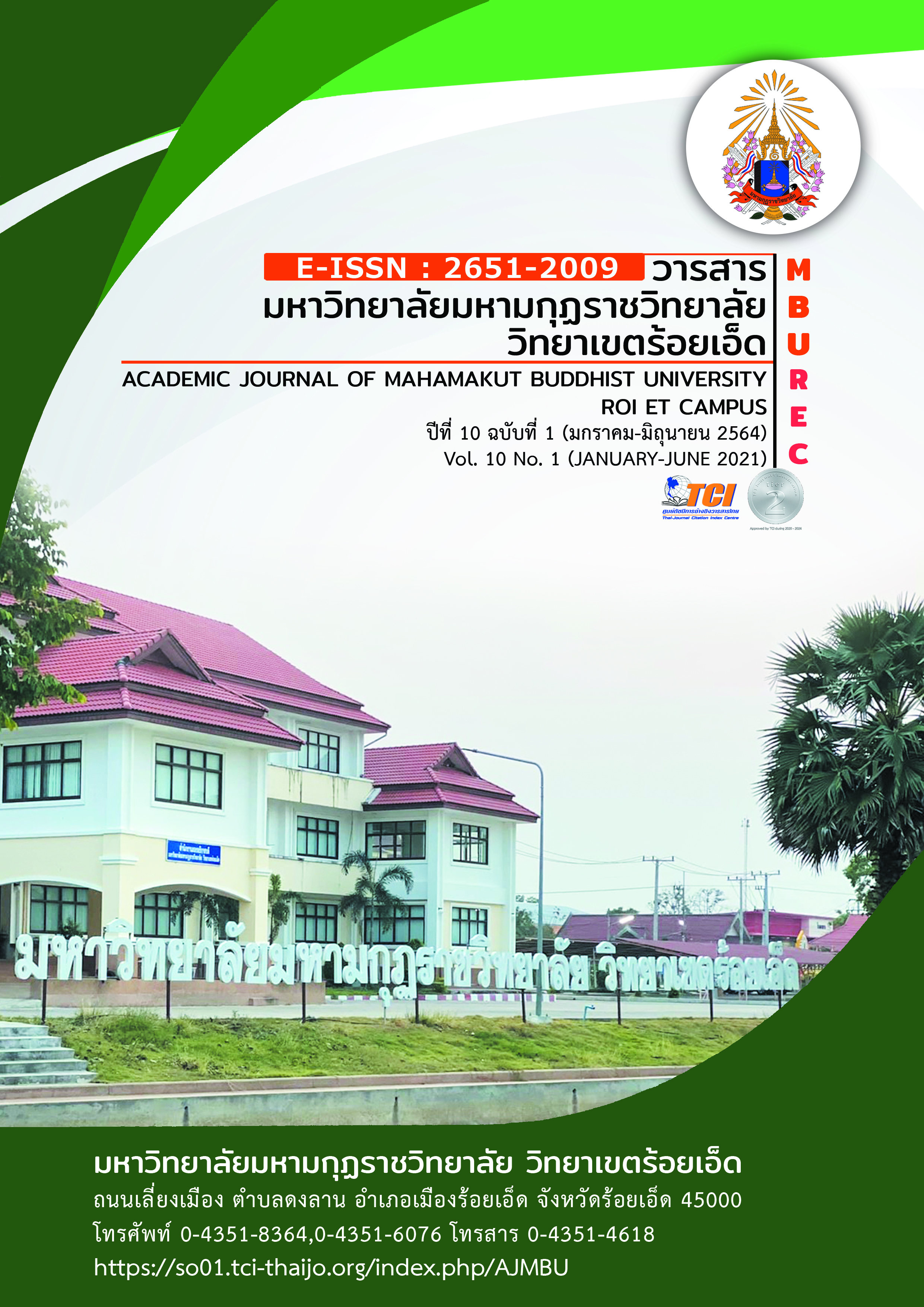Conflict Phenomena and Buddhist Management in the Digital Age
Main Article Content
Abstract
The objectives of this academic article are as follows: 1) to study the concept and theory of conflicts, 2) to study the concept and management theory, and 3) to analyze Buddhist conflict management in the digital age. Moreover, due to the communication with technology and the Internet is a necessity that has to be embraced inevitably, smartphones and digital have taken over the lives and minds of people around the world, which is likely to increase. Buddhist conflict management make it known to self-control Look at the conflict as a tool or mechanism that will drive the organization forward. The Buddhist style is understandable “inaction” and converts conflicts into transparent competition. Or according to the will Able to eliminate conflicts towards motivating as a driving force into work efficiency.
Therefore, the phenomenon of conflict and Buddhist management in the digital age. Through adherence “Rules-criteria-rules-principles” correct in accordance with good governance principles for the world in a globalized era The digital age and Thailand 4.0 need to apply this principle to continue to happen with various organizations. In every level of society. Which solving problems that arise must have many factors. To manage it effectively and efficiently. The introduction of Buddhist principles in the management of conflict in society to cease to replace peace and peace. Which the main goal is to end the suffering within resulting in a life without displaying persistent and conflicting behaviors calming body and speech.
Article Details
References
ติน ปรัชญพฤทธิ์. (2528). ศัพท์รัฐประศาสนศาสตร์. พิมพ์ครั้งที่ 5. กรุงเทพมหานคร : สำนักพิมพ์แห่งจุฬาลงกรณ์ราชวิทยาลัย.
ธงชัย สันติวงษ์. (2534). พฤติกรรมองค์การ. กรุงเทพมหานคร : โรงพิมพ์ไทยวัฒนาพานิช.
พรนพ พุกกะพันธุ์. (2542). การบริหารความขัดแย้ง. กรุงเทพมหานคร : โรงพิมพ์บริษัท ว.เพ็ชรสกุล.
มูลนิธิมหามกุฏราชวิทยาลัย. (2525).พระไตรปิฎกฉบับมหามกุฏราชวิทยาลัย. เล่มที่ 27, 33. กรุงเทพมหานคร : โรงพิมพ์มหามกุฏราชวิทยาลัย.
แมคคอลแนล, จอห์น, (2538). ศาสตร์และศิลป์แห่งการระงับความขัดแย้ง : คู่มือสำหรับชาวพุทธผู้ใฝ่สันติ. กรุงเทพมหานคร : โรงพิมพ์เรือนแก้วการพิมพ์.
ศิริวรรณ เสรีรัตน์ และคณะ. (2538). ศัพท์การบริหาร. กรุงเทพมหานคร : ศูนย์เอกสารวิชาการ.
เสริมศักดิ์ วิศาลาภรณ์. (2534). ความขัดแย้ง การบริหารเพื่อความสร้างสรรค์. กรุงเทพมหานคร : สำนักพิมพ์ตะเกียง.
อุทัย หิรัญโต. (2527). ชนชั้นข้าราชการ. กรุงเทพมหานคร : โอเดียนสโตร์.
Morris C. (2004). Managing Conflict in Health Care Settings : Principles, Practices and Policies. Prepared for a workshop on Resolving Conflict and Apologiesat King Prajadhipok is Institute, Bangkok,Thailand.


